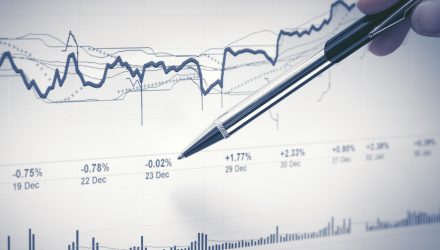The U.S.-China trade war, inverted yield curves and slowing global growth provided a backdrop for a possible recession to come, but that may not be so according to global investment firm Goldman Sachs. Can the U.S. economy resist a recession the next few years?
Maybe or maybe not — as a CNBC report noted that Goldman Sachs did an analysis of “current potential risks to growth show that they are mostly muted. The report found that the pillars of the ‘Great Moderation’ that began in the 1980s — low levels of volatility marked by sustainable growth and muted inflation, interrupted only by the financial crisis more than a decade ago — are still standing.”
The analysis comes as U.S. equities end 2019 with the major indexes hitting record highs following a U.S.-China “phase one” trade deal. Nonetheless, Goldman economists posits that risks still remain, but the economy appears fortified enough to withstand a recession should one occur.
“Overall, the changes underlying the Great Moderation appear intact, and we see the economy as structurally less recession-prone today,” Goldman economists Jan Hatzius and David Mericle wrote. “While new risks could emerge, none of the main sources of recent recessions—oil shocks, inflationary overheating, and financial imbalances—seem too concerning for now. As a result, the prospects for a soft landing look better than widely thought.”
The Macro Trade in U.S. Equities
Forecasting strength in U.S. equities creates an opportunity for investors to capitalize on the Direxion FTSE Russell US Over International ETF (NYSEArca: RWUI). RWUI offers investors the ability to benefit not only from domestic U.S. markets potentially performing well but from their outperformance compared to international markets.
RWUI features:
- Seeks investment results, before fees and expenses, that track the Russell 1000®/FTSE All-World ex-US 150/50 Net Spread Index (the “index”).
- The fund, under normal circumstances, invests at least 80% of its net assets (plus borrowing for investment purposes) in securities that comprise the Long Component of the index or shares of ETFs on the Long Component of the index.
- The index measures the performance of a portfolio that has 150% long exposure to the Russell 1000® Index (the “Long Component”) and 50% short exposure to the FTSE All-World ex-US Index (the “Short Component”).
Investors looking to play the other side can use the Direxion FTSE International Over US ETF (NYSEArca: RWIU) to capitalize on international equities will outdoing U.S. equities. RWIU seeks investment results, before fees and expenses, that track the FTSE All-World ex US/Russell 1000 150/50 Net Spread Index, which measures the performance of a portfolio that has 150 percent long exposure to the FTSE All-World ex US Index and 50 percent short exposure to the Russell 1000® Index.
For more market trends, visit ETF Trends.

